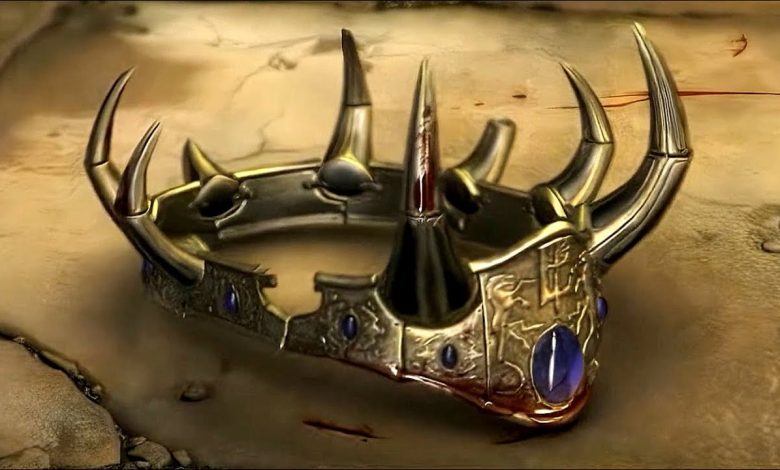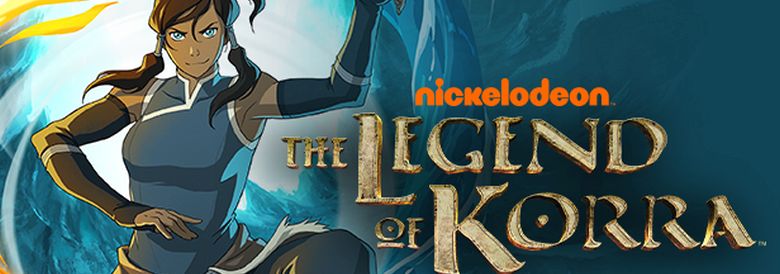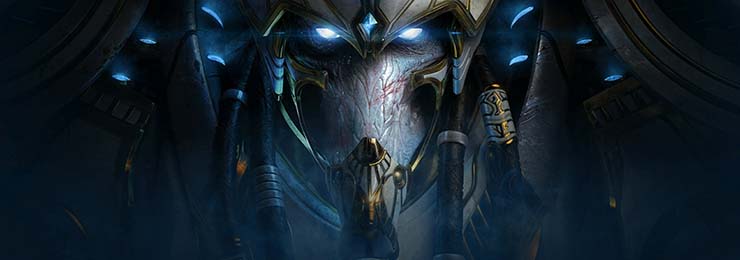
One of the things we're not really known for is our commitment to regular release of the Group Therapy podcast. Nevertheless, since various developments dictated a necessity for discussion, we have made the big decision to return behind the microphones. Our main topic: developments at Blizzard as well as a chat about the dark world covered by the velvet curtains of the gaming industry. As befits the occasion, and our identity, we constantly go off-topic by jumping from one topic to another. But we do manage to raise some concerns and perhaps even draw a conclusion with what's going on not only at Blizzard but in the industry at large. Without further ado, we wish you a good listen and look forward to your comments and reflections! [Please note: The podcast is only available in greek[
Links relevant to the discussion:
A blog by Nevalistis (ex Community Manager for Blizzard)






Γαμώτο, γελάω κάθε φορά που ακούω στην αρχή τον Βόρειο σε οτιδήποτε με κουβέντα κι αν βγάλετε. Δεν ξέρω αν είναι άμυνα του οργανισμού μου το γέλιο για να μην ερεθιστώ κι έχουμε άλλα, πάντως γελάω κάθε φορά.
EDIT: Δεν πρότεινε ο Ναύαρχος καν ως θέμα τις Μαρβελοταινίες και πως επηρεάζουν τον κινηματογράφο με σπέσιαλ γκεστ τον κυρ Στέφανο από τα παλιά; Απογοητεύτηκα.
Τα πάντα-όλα για τη μικρή βιτσιόζα σκύλα.
Kαταλαβαίνω ότι είχαμε πιει εκείνο το βράδυ, αλλά να υπενθυμίσω ότι εγώ ήμουν το Τσουλί του Μπαξέ στο πάρτυ της ντροπής.
Όλα ήταν θωλα, όλοι ήταν εν σώμα.
[MEDIA=spotify]show/31haUdc5D7PGNaaY8P1Vvs[/MEDIA]
Να κάνετε φόλω, λάηξ και σασκράη στην εκπομπή στο Σπετζοφάη.
[ATTACH type=”full” width=”355px” alt=”Screenshot_2021-08-10-14-38-11-171_com.spotify.music.jpg”]2324[/ATTACH]
Κάναμε κάναμε.
Φώλο λάι σαπσκράι. Παρών.
[ATTACH type=”full” width=”785px”]2346[/ATTACH]
Με την ευκαιρία, ήθελα να ρωτήσω δύο πράγματα όποιον ακούει γενικά podcasts:
1) Πόση διάρκεια είναι η ιδανική κατά την άποψη σας;
2) Προτιμάτε συζήτηση πάνω σε ένα θέμα κάθε φορά ή σε πολλά;
[QUOTE=”Admiral, post: 578340, member: 102598″]
Με την ευκαιρία, ήθελα να ρωτήσω δύο πράγματα όποιον ακούει γενικά podcasts:
1) Πόση διάρκεια είναι η ιδανική κατά την άποψη σας;
2) Προτιμάτε συζήτηση πάνω σε ένα θέμα κάθε φορά ή σε πολλά;
[/QUOTE]
1) εγώ θα έλεγα κανένα προς τα πάνω όριο, εξαρτάται μόνο από την δική σας διάθεση, θέλετε να κάνετε 7 ώρες podcast; κανένα πρόβλημα.
2) καλύτερα περισσότερα και με timestamps
Επίσης ήθελα να πω ότι όταν ξεκινάτε ένα θέμα πχ επικαιρότητας σκεφτείτε για μια στιγμή αυτόν που μόλις έχει κατέβει από άλλον πλανήτη και πχ πείτε εντελώς επιγραμματικά τα γεγονότα στα οποία αναφέρεστε.
.
[MEDIA=youtube]W8r-tXRLazs[/MEDIA]
.
Υπάρχει κάποιος λόγος πίσω από αυτήν την επιθετικότητα από ένα άτομο που δεν προσβάλει κανέναν κατά τα λεγόμενά του;
πωπωωωωωωωωωωωωωω
ειναι ΠΡΟΦΑΝΕΣ οτι προκειται για αποπειρα χιουμορ με γνωστο ινσαιντ τζοουκ ως βαση.
Δεν ακούω σχεδόν ποτέ podcasts, οπότε δεν ξέρω τι βαρύτητα έχει η γνώμη μου αλλά μερικές σκέψεις από το συγκεκριμένο επεισόδιο:
– Το αισθάνθηκα μεγαλύτερο απ’όσο ήταν (title of your sex tape). Δεν ξέρω σε τι οφείλεται αυτό, ίσως λίγο πλατειάζατε κάποιες στιγμές, ίσως αργήσατε λίγο να μπείτε στο θέμα, πάντως ένα καλύτερο pacing το χρειαζόταν.
– Νομίζω χρειάζεται συντονισμός, ένας δηλαδή να μοιράζει τον λόγο ή έστω να γίνεται rotation μεταξύ των συνομιλητών με κάποιο τρόπο για να μην υπάρχει τέτοια ανισορροπία. Η αναλογία μού φάνηκε πως ήταν 65% Παύλος, 30% Αλέξανδρος, 5% Ηλίας και από ένα σημείο και μετά χτυπούσε περίεργα, λες και άκουγα one man show κι όχι group therapy.
– Συμφωνώ με τον lucinos ότι είναι χρήσιμες οι εκτενέστερες αναφορές στο source material της συζήτησης για να είναι πιο αυτόνομο το podcast και να μην χρειάζεται ο ακροατής να googlάρει παράλληλα τα tweets, άρθρα και forum posts που εμπνέουν τη συζήτηση. Όχι να κάθεστε να διαβάζετε όλο το άρθρο στον αέρα, απλά να δίνετε περισσότερο context.
– Αν γίνεται η συζήτηση πιο πειθαρχημένα και με πιο ισότιμη συμμετοχή των συνομιλητών, άνετα θα καθόμουν να ακούσω podcast που θίγει περισσότερα θέματα ταυτόχρονα. Προς το παρόν, πάντως, θα προτιμούσα ένα και καλό (π.χ. Steam Deck που ανέφερε ο Άλεξ ή GaaS games ή κάτι άλλο).
– Παρότι ίσως δεν φαίνεται από το feedback μου, το επεισόδιο μού άρεσε αρκετα, εξού και το άκουσα όλο :p
ενταξει, δεν ηταν και παν για γατες, αλλά δεν ηταν και για πεταμα.
οπως και να χει, ελπιζω να ειναι ολα καλα τωρα.
Yup, έχεις δίκιο maladroid θα περιορίσω αρκετά το χρόνο μου στα επόμενα, ίσως και σε πιο συντονιστικό ρόλο. Ήταν το πάθος για την παλιά πρώην που ενώ την έχεις αφήσει εδώ και καιρό, λυπάσαι να την βλέπεις να έχει πέσει σε σκληρά ναρκωτικά και λιώνει αργά και βασανιστικά. Ο Αλέξανδρος στο επόμενο θα έχει σίγουρα περισσότερα να πει.
Μπορείς να ανεβάσεις την συμμετοχή σου στο 80% και να φωνάζεις μόνο ΠΑΥΛΟΣ! ΠΑΥΛΟΣ! ΠΑΥΛΟΣ! Αξέχαστες ροκελί στιγμές.
Έτσι ουρλιάζουν εδώ στο ερασιτεχνικό στην μπάλα. Λάσπη και γρασίδι και φωνές. Μόνο τα kilts λείπουν και θα είχαμε Braveheart φάσεις.
Στα γκρουπ θεραπι συνήθως μιλάει περισσότερο ο πιο προβληματικός, μήπως και το βγάλει επιτέλους από μέσα του.
Άρα υποθέτω ότι η περίπτωσή μου παίρνει κάποια θεραπεία
[QUOTE=”Admiral, post: 578340, member: 102598″]
Με την ευκαιρία, ήθελα να ρωτήσω δύο πράγματα όποιον ακούει γενικά podcasts:
1) Πόση διάρκεια είναι η ιδανική κατά την άποψη σας;
2) Προτιμάτε συζήτηση πάνω σε ένα θέμα κάθε φορά ή σε πολλά;
[/QUOTE]
Συνήθως ακούω podcasts σχετικά με προγραμματισμό (α και ένα μη-technical που είχα ακούσει, το 9 days in July!). Το δικό σας ήταν το
1ο γκέιμιν ποντκαστ που άκουσα 🥇 Οπότε:
1. Για τα προσωπικά μου γούστα 45-60 λεπτά είναι καλή διάρκεια.
2. Σε ένα θέμα τη φορά, το πολύυυ 2. Ούτως ώστε να υπάρχει χρόνος για να θέσουν τη γνώμη τους όλοι οι συμμετέχοντες.
On a side note: Γιατί ρε Μπλίζαρντ (ρητορικό το ερώτημα..); :giankos: :giankos: